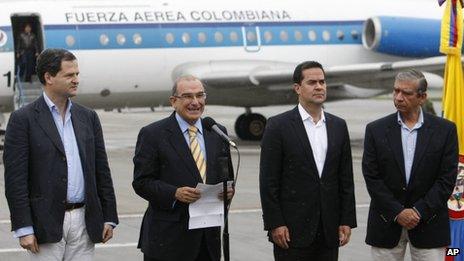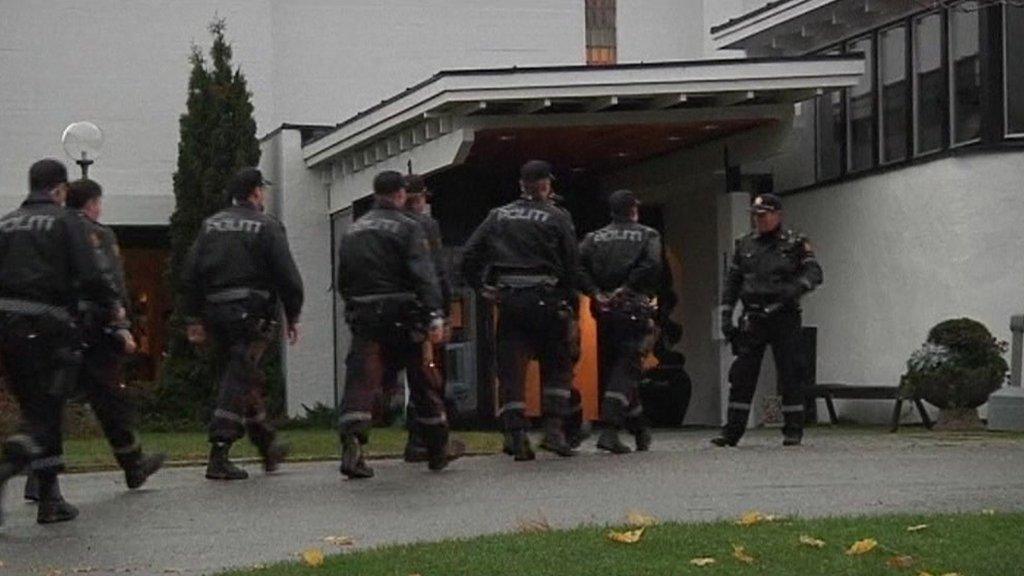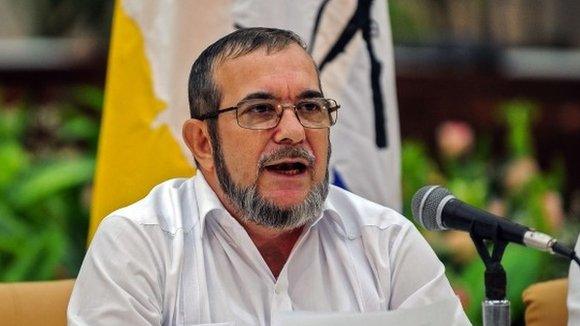Colombian Farc rebels announce Christmas ceasefire
- Published

Chief Colombian government negotiator Humberto de la Calle addresses the media as the delegation leave for the first direct peace talks in a decade
Colombia's left-wing Farc rebels have announced a unilateral Christmas ceasefire, on the first day of peace talks in Cuba.
The truce will run from Tuesday until 20 January, negotiator Ivan Marquez said.
Colombian government negotiators arrived in Cuba late on Sunday for the peace talks. The Farc delegates have been in Havana since last week.
The negotiations in Havana are aimed at ending five decades of conflict.
As he boarded a plane in the Colombian capital, Bogota, chief government negotiator Humberto de la Calle said it was time for the rebels to show whether they were really "willing to reach concrete and realistic agreements".
The negotiations were due to begin last Thursday, but were pushed back by four days as both sides said they needed time to work on "technical details to ensure the participation of civil society".
The peace talks were officially launched at a ceremony in the Norwegian capital, Oslo, on 18 October.
'Rapid process'
The negotiations will focus initially on the issue of land reform in Colombia, as it was a major reason for the uprising that brought about the establishment of the Farc [Revolutionary Armed Forces of Colombia] in the early 1960s.
Four other points will be discussed: the end of armed conflict; guarantees for the exercise of political opposition and citizen participation; drug trafficking; and the rights of the victims of the conflict.
"This will be a rapid and effective process. A process of months, not years," said Mr De la Calle.
He travelled to Havana on a Colombian Armed Forces plane in Bogota with four other government negotiators.
The Colombian government expects the Farc to give up its armed struggle and join the political process as a legal party at the end of the negotiations.
During the official launch of the face-to-face negotiations in Norway, Farc delegation head Ivan Marquez renewed calls for a ceasefire.
But the Colombian government has said it will not repeat the mistakes of the past - a reference to the last peace efforts, which went on from 1999 to 2002.
At the time, a huge area controlled by the left-wing rebels in the south of the country was demilitarized, which, according to critics, allowed them to rearm and weakened their will to seek a peace agreement.
Hundreds of thousands of people have died since the conflict began in Colombia, with millions more displaced.
The Farc, who numbered 16,000 in 2001, are now thought to have some 8,000 fighters.
- Published18 October 2012

- Published24 September 2015

- Published29 August 2013